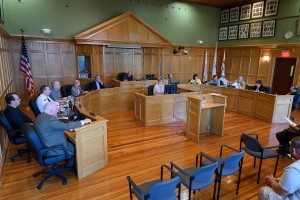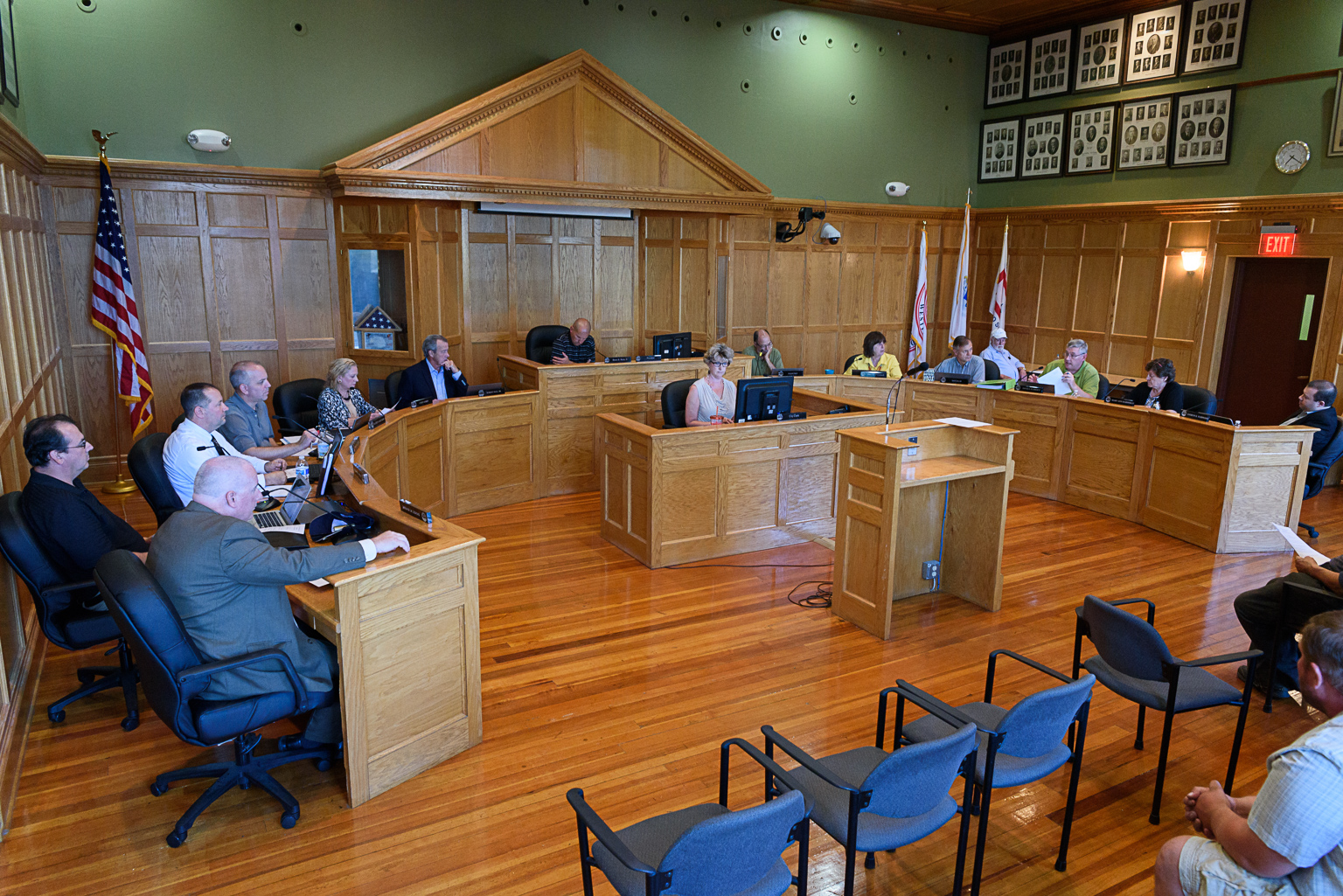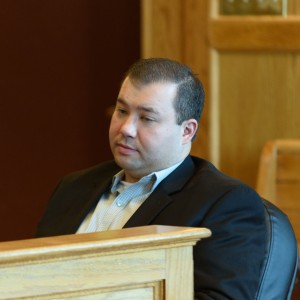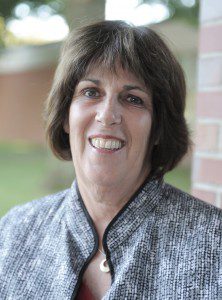WESTFIELD – Following a lengthy discussion Wednesday evening, the City Council passed two of the five criteria that will enable Westfield to become a state-designated “Green Community.” 
Ward 6 Councilor William Onyski made a motion for the adoption of the stretch code for the building department. He said that its passage would make Westfield eligible to receive $250,000 the first year from the state, and be eligible for another $250,000 in its second year. He also said that the city will have the ability to rescind it after one or two years. “We’re not stuck with it,” he said.
Onyski said the stretch energy code, which requires new construction to reduce lifecycle energy costs, will cost $1000 to $2,000 more per building, but that will be offset to some extent by savings. He said the Council already discussed taking some of the $250,000 award to give back to builders, which he would like to see happen.
Ward 3 Councilor Andrew K. Surprise asked At-large Councilor Daniel Knapik, state director of the Green Communities Division, where the money would come from.
Knapik said that funds would come from power companies’ bids in carbon allowance auctions, and also from penalties paid by retail electric suppliers that go into a trust fund for clean energy. He said the money does not come from taxpayers. Knapik said almost 60% of communities in the state have adopted stretch energy.
“I’m probably going to support this, but if it does cost businesses thousands of dollars, I would be in favor of putting a pool together for businesses and residential,” Surprise said.
Ward 4 Councilor Mary O’Connell said that she talked to seven contractors building homes in Westfield.
“These people are very much opposed. I’m going to vote against it. The state building code does the job we need. I’m not interested in signing on to any more programs that commit us,” O’Connell said.
“This is a positive thing and we do have a way to opt out. They have to improve energy use in the state. This will save money for residents,” said Ward 1 Councilor Mary Ann Babinski.
“I’m going to vote against it. I’ve talked to builders, nobody wants it,” responded At-Large Councilor Dave Flaherty. “If a builder was going to save money by doing this, they’d be doing it already,” he added. Flaherty said that it is an outside initiative that depends on rebates.
“Why not let the state have one building code that applies to the whole state,” Flaherty asked.
Onyski said the cost will increase by $2,066 for the average house, and the savings will eventually be for homeowners on a four-year payback. But he said in the building code, you cannot pick and choose. In the stretch code there is more flexibility, such as you can get a less efficient furnace if you get more efficient windows.
Knapik agreed that for most people who go to buy a home, the base building code tells you exactly what furnace to buy. The stretch code allows for more flexibility, so it’s a tradeoff. He said builders are complaining about the building code in general.
“Ask builders in stretch code communities. They will tell you it’s easier, has more flexibility. In the end, homeowners will tell you it’s worth it,” Knapik said.
Knapik said he’s been around the City Council for 15 years. “We’ve complained for years about not having maintenance to improve the housing stock.” He pointed to the schools saving over $300,000 in changing furnaces from steam to hot water.
“We have a chance in five years to add $1 million to the city budget. I would strongly encourage us to look at getting money for the city that will save energy,” Knapik added.
 “We’re being asked to approve the stretch code by November 20 to get money in the short term. Massachusetts is already the most energy efficient state in the nation. This goes beyond one of the most energy efficient codes in the nation,” said At-Large Councilor Dan Allie. He said this battle has been fought across the country for years.
“We’re being asked to approve the stretch code by November 20 to get money in the short term. Massachusetts is already the most energy efficient state in the nation. This goes beyond one of the most energy efficient codes in the nation,” said At-Large Councilor Dan Allie. He said this battle has been fought across the country for years.
“The reason for this is to take advantage of the green energy measures we’ve already done in the city,” said Babinski.
“If we weren’t to vote on it now, we’d have to wait until next year to become a Green Community. In January, the stretch energy code is going to become a part of the building code anyway. A lot of the earlier agitation points for people not in favor of it have been addressed. There will be other things to haggle on in the future,” Knapik said.
Ward 2 Councilor Ralph J. Figy then moved to adopt the stretch code, which passed 10-3, with O’Connell, Allie and Flaherty voting against the resolution.
Figy then introduced the fuel efficient vehicle policy for municipal vehicles, which he said is another part of the Green Community plan. He said the School Committee unanimously approved the policy.
O’Connell asked who weighed in on the policy and where it came from, questioning whether they had the expertise.
Figy said it came out of the city legal department, written by assistant city solicitor Shanna Reed. He said that the experts came to the Legislative & Ordinance Committee, and he expressed frustration that those with questions didn’t come to the meeting.
“The work of the Council is to be done in committee, not on the Council floor,” Figy said.
The motion passed 11-2, with O’Connell and Allie dissenting.
Earlier in the meeting, Ward 5 Councilor Robert A. Paul, Sr. asked for the first reading on a $4 million bond order for the Department of Public Works for water meter replacement. A favorable brief discussion followed, with Flaherty and others saying that the bond would be repaid by $300,000 to $600,000 in annual savings from the new meters. The matter was moved to a second reading at the next meeting.
At-Large Councilor Matthew T. VanHeynigan also made a motion to transfer $75,000 from stabilization for emergency tree removal.
Flaherty said while he is not in favor of using stabilization, he was in favor of approving this request because it’s an emergency. “We’re in bad shape, we need trees fixed,” he said. The motion passed unanimously.
A second reading on the AFSCME Foreman contract was also brought forward by Paul on a 2-1 recommendation from the Finance Committee.
Flaherty said he would be voting no, because the FY17 budget passed by the Council is $1 million short.
“We don’t know where the money is coming from,” he said.
“I would encourage us to approve it. We vetted this. It is accurate that it’s only for one year. I would encourage us to support the recommendation of the Finance Committee,” Paul said. The contract passed 9-4, with O’Connell, Surprise, Allie, and Flaherty voting against it.





